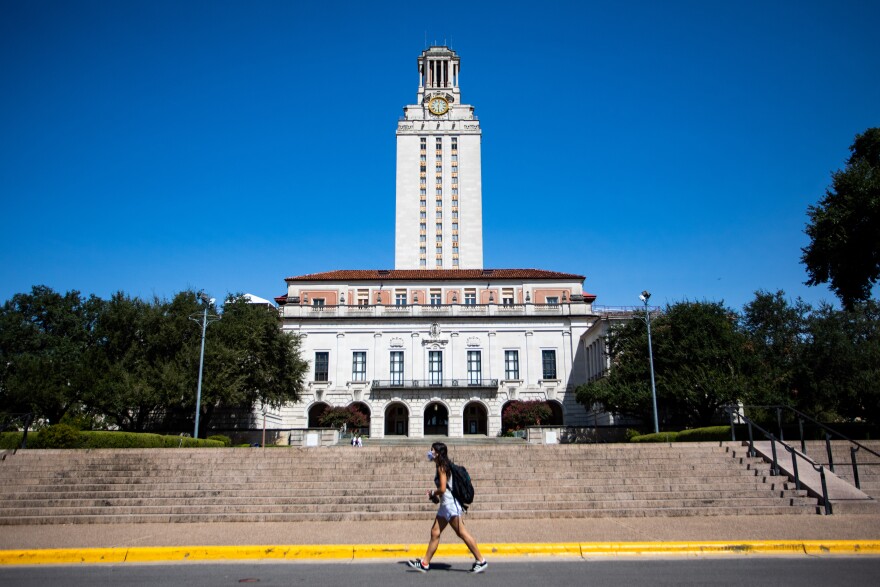UT Austin has had three staff members die from COVID-19, according to UT President Jay Hartzell. Previously only two deaths had been made public – a custodial staff member who died in July and a utilities and energy management staffer who died in October.
Hartzell notified the public of the third death during his State of the University address Thursday, but did not provide further details.
“Tragically, three of our beloved staff members contracted COVID-19 and died over the past year,” he said. “Their families and colleagues still grieve. In addition, many staff, faculty and students have lost loved ones. Disruptions in our shared life have taken a significant toll on our physical and mental well-being.”
Because of the pandemic, the university didn’t hold a live event for the president's annual address this year and instead released an audio broadcast online. This was Hartzell’s first State of the University. He was the dean of UT’s business school before stepping in as interim president after Greg Fenves’ departure in June. Hartzell was confirmed as president in September.
In his speech, Hartzell praised UT’s efforts to combat the coronavirus and adapt to online learning. He said the university has spent nearly $30 million on “Protect Texas Together,” its plan to slow the spread of the virus on campus through proactive testing and other means. He said UT has conducted more than 60,000 COVID-19 tests on more than 20,000 people.
“Because of this, we’ve managed to intercept over 700 people who were positive but asymptomatic,” he said. “We worked with them to isolate from the rest of our community.”
He also highlighted researchers whose efforts have helped combat the virus on a global scale, like molecular biologist Jason McLellan, whose lab developed the technology used in COVID-19 vaccines, and Lauren Ancel Meyers, whose COVID-19 Modeling Consortium has helped communities assess the threat of the virus.
“Our strengths as an institution have shone during the past year,” he said. “And those strengths haven’t just enabled the continuation of campus life. The pandemic has sharpened the role of research universities in our society — and as with all our work, what starts here has the ability to change the world.”
UT’s Dell Medical School was the first institution in Central Texas to receive COVID-19 vaccine shipments, and last month UT Health was designated a “vaccine hub.”
“We’re now administering vaccines to medically vulnerable staff, faculty and students,” Hartzell said. “And we’ve been designated as a vaccine hub by the state of Texas, which means we’re now allocated more vaccine so we can take on an expanded role vaccinating underserved communities in the Austin area.”
Now that vaccines are being distributed, Hartzell said the university can hopefully return to “near normal” in the fall. Students have largely been learning online throughout the pandemic, with some in-person and hybrid options.
There have been some benefits to online learning, he said. For example, it’s easier to have guest speakers use Zoom to speak to classes, rather than having to fly them to Austin. And moving advising sessions and office hours online has caused participation to increase.
“Students often prefer joining a professor’s virtual office hours to ask a quick question rather than bearing the costs of getting to and from the professor’s office,” he said.
UT will likely keep using some aspects of online learning when in-person learning returns, he said.
Hartzell also noted the pandemic’s financial impact on the university. He said UT remains “financially sound” and is more fortunate than other institutions with fewer resources.
“But we have had to make some hard decisions to prudently manage our resources, including an estimated $150 million drop in revenues,” he said. “In other words, the storm we are weathering has taken a toll, and we need to mend our sails."
Got a tip? Email Marisa Charpentier at mcharpentier@kut.org. Follow her on Twitter @marisacharp.
If you found the reporting above valuable, please consider making a donation to support it. Your gift pays for everything you find on KUT.org. Thanks for donating today.







